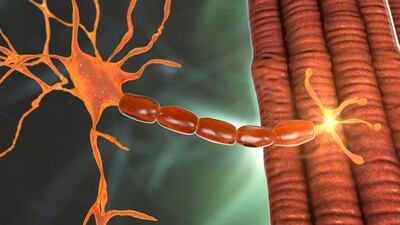
Approvals

Along with several new positive approval recommendations, Japan's proceeding to grant Sakigake designation to two drugs including a DMD gene therapy discovered through public collaboration. Meanwhile, the PMDA has opened a new full-time office in the US.

The UK’s drug regulator has approved Eli Lilly’s early Alzheimer’s drug Kisunla, but England’s health technology assessment agency NICE said that the product “does not currently demonstrate value” for the National Health Service.

This is an update of recommendations from the European Medicines Agency's Committee for Medicinal Products for Human Use on the authorization of new medicines in the EU, and updates on EU marketing authorization changes recommended by the CHMP.

The Therapeutic Goods Administration appears to share similar safety concerns regarding Leqembi as those expressed by the European Medicines Agency when it rejected the drug in July.

The sponsors of medicines that are nearing the end of the regulatory review cycle in the EU could this week be asked to explain why the European Medicines Agency should recommend approving their products.

Nipocalimab is an investigational FcRn blocker for treating generalized myasthenia gravis that was also recently filed for regulatory review in the US.

Companies will initially be able to submit their dossiers to the Health Sciences Authority via the eCTD portal on a voluntary basis.

New guidance from the European Medicines Agency explains how in vitro and in vivo models may be used instead of clinical data for the purpose of establishing therapeutic equivalence in a stepwise approach.

The UK regulator approved 16 medicines containing a new active substance in the first half of this year, while the European Commission issued marketing authorizations for 20 NAS-containing drugs.

The FDA approved MedImmune’s FluMist for home use to prevent flu caused by virus subtypes A and B in individuals age 2 through 49 years old.

This is an update of recommendations from the European Medicines Agency's Committee for Medicinal Products for Human Use on the authorization of new medicines in the EU, and updates on EU marketing authorization changes recommended by the CHMP.

The refuse-to-approve decision for i02/Intarcia’s Type 2 diabetes combination product is the latest example of the FDA reaching final negative decisions on challenging regulatory cases.

The World Health Organization has also prequalified the Bavarian Nordic vaccine to enable broader and timely access.

The European Medicines Agency has recommended the pan-EU approval of three rare disease drugs: Pfizer’s Hympavzi, Henlius Biotech’s Hetronify and ImmunoGen’s Elahere in addition to five other new medicines.

The European Medicines Agency has highlighted issues for drug developers to consider when seeking to submit clinical data from SATs as the pivotal evidence in their marketing authorization applications instead of randomized controlled trial data.

Halozyme’s Enhanze technology has now brought seven monoclonal antibodies, including Ocrevus and Tecentriq, from IV to subcutaneous delivery, but Alteogen and other high-concentration formulation players hope to join the party as Medicare pricing issues help drive interest.

Vadadustat's review overlapped with two other oral HIF-PH class drugs. Safety issues with FibroGen/AstraZeneca’s roxadustat drew attention during vadadustat's first-cycle review, while GSK’s Jesduvroq labeling and postmarketing requirements informed the second-cycle approval.

England’s health technology assessment body, NICE, says it has suspended the appraisal process for the motor neurone disease treatment while it considers the next steps. No HTA submission for tofersen has been made in Scotland.

The European Commission has registered a European citizens' initiative that explains how the EU can foster equitable, timely, affordable, safe and legal access to innovative psychedelic-assisted treatments. Work towards securing the one million signatures needed for the next step is starting soon.

The Pink Sheet Drug Review Profile explores the US FDA’s approval of vadadustat to treat anemia in chronic kidney disease patients on dialysis. A complete response letter cited the risk of drug-induced liver injury, but postmarketing data from Japan reassured reviewers.